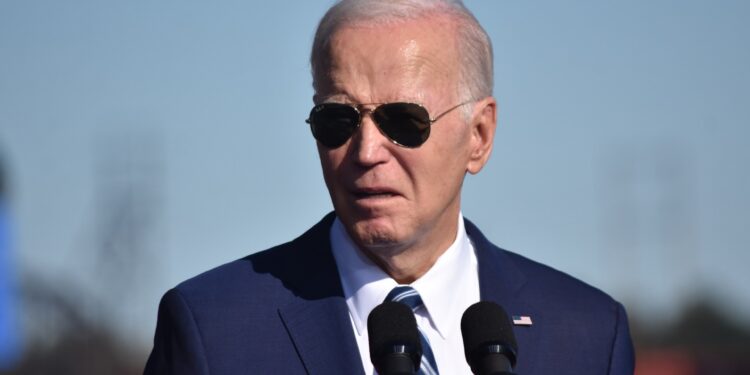An American writer said that US allies and partners are feeling increasingly frustrated because Washington is not using enough influence to protect the Palestinians.
In an article in the Washington Post, writer Karen De Jong blamed this on President Joe Biden’s support for Israel, which may be at the expense of American foreign policy.
She explained that when Biden recently warned Israel that it was losing international support because of the war it was waging in the Gaza Strip, he could have similarly warned that his administration also had a lot to lose.
Just promises
She pointed out that Biden, “who describes himself as the most experienced president in history in foreign policy,” promised to regain the reins of world leadership as a “strong and reliable partner for peace, progress, and security.”
De Jong commented that since then, American foreign policy has been witnessing ups and downs, starting from the “farce” of withdrawal from Afghanistan, to regaining leadership in the North Atlantic Treaty Organization (NATO), the successful mobilization of aid to Ukraine and the “troubled” coexistence with China.
According to the article, there is recognition within the Biden administration that his absolute support for “Israel’s right to destroy” the Islamic Resistance Movement (Hamas) may be at the expense of his standing at home and abroad.
Unseen diplomatic cost
The writer quoted a senior administration official – who spoke on the condition of anonymity – as saying that the diplomatic cost of this support “may be something unforeseen,” and what is meant, in general, is “for countries to look at the United States positively, and to show a willingness to support it, and a desire to support it.” Cooperate with her.”
She goes on to add that if public opinion in many countries is “hostile,” this will make it very difficult for the United States to attract support from them on issues that are the focus of attention of Americans.
The senior official says that the Biden administration “boasts” about repairing relations with countries around the world and its cooperation with its allies and partners, as it does not want to be isolated in the region and other places.
He added, “This is part of the message to Israel, as it is not beneficial for Israel to feel such pressure, under which we are suffering.”
Isolation in international forums
De Jong, who works as an associate editor and national security correspondent for the Washington Post, believes that isolation is most clearly evident in international forums such as the United Nations, where the United States was almost alone in opposing UN Security Council resolutions calling for a ceasefire in Gaza.
Last week, when the United Nations General Assembly, which includes 193 member states, overwhelmingly approved a similar resolution, only 9 countries joined the US administration in voting no.
According to the article, since the early 1970s, the United States has used its veto power against dozens of resolutions criticizing Israel.
The United States’ foreign partners are not the only ones urging the administration to make more efforts to achieve a ceasefire in Gaza. Some American officials in the White House, State Department, and aid agencies have begun to publicly express their objections to Biden’s absolute support for Israel, believing that such a position would have greater repercussions. On American leadership.
Duality of standards
As part of its efforts to persuade developing countries to move away from Russia and China, Washington described the Russian invasion of Ukraine as “colonial aggression,” as the article put it.
The writer stated that the “harshest” phrases included in the words of international delegations at the General Assembly meetings were spoken by America’s close partners in the Middle East. Egyptian Ambassador Osama Abdel Khaleq said in his speech before the Assembly that there is a “hateful indication of double standards” when those who claim to respect international humanitarian law in certain cases turn their backs “shamelessly” on other situations, especially when they relate to the Palestinians.
De Jong said that Biden did not fulfill his promises made during his previous election campaign to reopen the US Consulate for the Palestinians in Jerusalem and the Palestine Liberation Office in Washington, both of which were closed by President Donald Trump.



